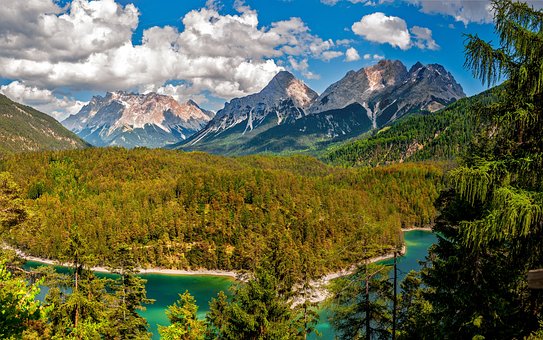Posted by Chester Morton / Monday, 15 February 2016 / No comments
The contest on Mount camel

After three years, God told
Elijah to go back and show himself to Ahab. When Ahab met Elijah, he addressed
him as the trouble maker for Israel. Elijah denied the accusation and said Ahab
was the trouble maker for Israel because he had encouraged the worship of Baal
in Israel.
Elijah instructed the king to
assemble all Israel on Mount Camel together with the 450 worshipers of Baal
and 400 worshipers of Asherah. The aim is to prove which god is more powerful,
Yahweh or Baal.
On the D-day, the whole of Israel
gathered on mount Camel, including the four hundred and fifty prophets of Baal.
Elijah told the people to stop having two opinions. He said Baal is god they
should follow and Yahweh is God they must follow him.
Elijah asked for one bull each to be given to him and to the Baal prophet. Elijah asked that the prophets of Baal
kill one of the bulls and cut it into pieces and put it on wood. He, Elijah too
would do the same. The Baal prophets should call on the god to burn the
sacrifice and he, Elijah would also call on his God to consume the sacrifice by
fire. The god that is able to answer by fire is the one that must be worshiped.
Elijah told the Baal worshipers
to start because they were more. The Baal prophets called on their god from
morning till noon but there was no answer. At a point, Elijah started making
fun of them. He advised them to shout louder because probably their god was
asleep, busy or traveled. However, there was no answer.
Elijah called the people
together, repaired the altar of the Lord which was in ruins and dug a trench around
the altar. He arranged the wood, cut the bull into pieces and laid it on the
wood. He asked that water be poured on the sacrifice. That was done and the
water drenched the sacrifice and filled the trench.
The prophet Elijah prayed to the
Lord and the sacrifice was consumed by fire. When the people saw this, they
bowed down and worshiped the Lord, saying, “The Lord, he is Lord! The Lord, He
is Lord”
Elijah commanded that all the
Baal prophets and asked that they bring them to the Kishon valley, where he
slaughtered them.
Elijah prophesied that there was
going to be rain. He told Ahab to go and eat. While he was gone, Elijah went back
to Mount Carmel and prayed for the rains. Anticipating that the rain was surely
coming, Elijah sent word to Ahab to go down to Jezreel so that rain does not
stop him. The clouds became black and the rains fell in torrents. At about the
same time, Ahab was riding a horse to Jezreel, the spirit of God came upon
Elijah and he ran ahead of Ahab and got to Jezreel before him.

MORAL LESSONS
1. Men of God should speak against evil in their society
2. The prophets of God must stand firm when they are persecuted.
3. Good triumphs over evil, all the time.
4. The right to life must be respected by all.
5. As a Christian, one must linger between God and Satan. Those who do so can incur punishment from God.

LESSONS ABOUT THE SUPREMACY OF GOD.
1. God showed his supremacy by withholding the rain as punishment.
2. God makes provision at all times. For the period that that drought lasted, God made provision for Elijah.
3. God protected the prophets that were loyal to him in Israel, during the famine and drought
SAMPLE QUESTION(S)
1. a. Describe God’s intervention
on behalf of Elijah.
b. State two lessons about the nature of
God.
2. a. Why did Elijah pronounce
drought on Israel?
b. What three lessons about the supremacy
of God can we learn from this event?
3. a. Trace the events that led
to Elijah’s pronouncement of drought in Israel?
b. What two lessons can be learned from the action of Elijah?
<<Back to Home Page
Go to other topics in Christian Religious Studies>>
<<Back to Home Page
Go to other topics in Christian Religious Studies>>
Labels:
CHRISTIAN RELIGIOUS STUDIES
Related Posts

